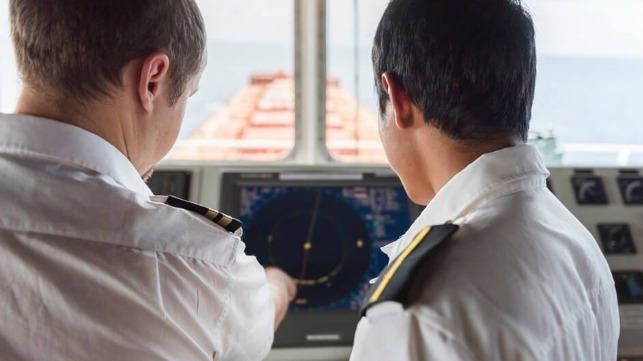Gard: Limits on Phone Usage are Needed for Seafarers' Safety

Marine insurer Gard has warned shipowners once again about the hazards of on-duty phone use, which is becoming easier and more tempting as shipboard connectivity improves. Notifications are a particular behavioral challenge, since an incoming text message can grab a seafarers' attention even when they aren't actively using their phone. But as tempting as it is to try it, multitasking with a phone exposes personnel to danger in a hazardous industrial environment - and owners/operators might consider restricting phone use during seafarers' working hours, Gard warned.
Like almost all members of modern society, seafarers can develop a habit of constant connection to their personal devices. While it may be tempting to think that it is possible to multitask with phone in hand, years of accident data suggest that texting and seafaring isn't much different from texting and driving - it's distracting, and therefore dangerous.
Every mariner knows of casualties that happened because someone was on the phone, from collisions to groundings to accidents on deck. Some examples are infamous, like the Ever Forward grounding in 2021, which was caused by a highly-trained marine pilot who was distracted by his phone while on duty. Others are tragic, like the death of the third mate of the ro/ro Seatruck Progress, who was struck and killed by a semi-trailer in 2019.
"Although it may seem like we are being productive by handling emails, social media, and various apps on one hand, whilst maintaining a navigation watch on the other, our brains are not processing these activities in parallel. Instead, we rapidly shift our focus between them, a phenomenon called task switching," cautioned Gard. "This division of attention, rather than genuinely multitasking, distracts from the primary task and ultimately reduces our ability to engage fully and effectively with either activity."
Switching back and forth between tasks takes mental energy, reducing concentration and decisionmaking ability. This slows down reaction times and reduces situational awareness, Gard warned.
Seafarers on night watch face an additional risk because they need their night vision. Human eyes can take five minutes or more to properly readjust to nighttime vision after exposure to a bright phone screen, research shows - and a watchstander needs to be able to see at all times.
Gard advised operators to consider putting restrictions on where and when their crewmembers can use phones and other devices. Options include limiting personal device use during working hours, or in certain locations, like the bridge and engine room; restricting device use when in pilotage waters; putting work computers in places where they won't be tempting to use on watch; or setting up the ships' communications systems in ways that limit distractions.
"While establishing procedures and processes, and raising awareness among the crew is important, it is crucial to emphasize that this alone may not be enough. Companies must also prioritize raising crew awareness regarding the distracting potential of these devices and verify that the established procedures are being followed," Gard advised.
